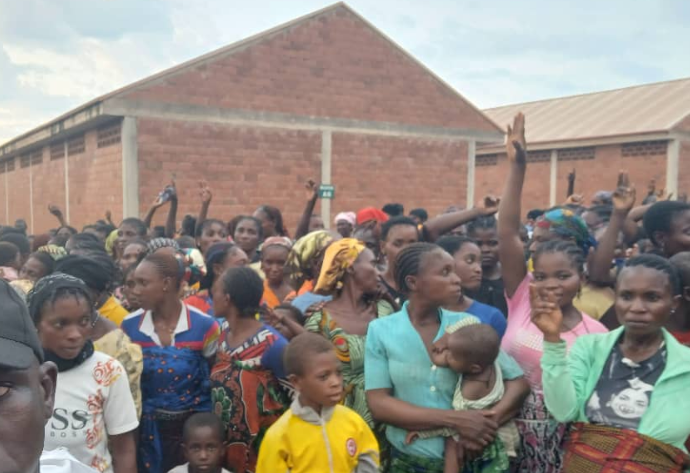The Federal Government’s renewed drive for agricultural transformation has received a major boost with the ongoing implementation of the Tractor Recovery Project, under the National Asset Restoration Programme spearheaded by the National Agency for Science and Engineering Infrastructure (NASENI).
Launched by Vice President Kashim Shettima GCON, in Maiduguri, Borno State on Sunday, June 8, 2025, as part of a broader effort to enhance mechanized farming, reduce food insecurity and stimulate industrial development, the project is targeted at yielding results toward wide-range impacts across agriculture, employment, environmental sustainability, and rural economic empowerment.
From the dusty farmlands of the North to the expansive plains in the South, the refurbished 375 tractors by NASENI will return to the fields, reviving hopes for a more food-secure Nigeria. For farmers, this intervention is a lifeline. Before the NASENI intervention, The Sun reported in 2019 that there are 7,000 functional tractors in circulation in Nigeria, meaning seven tractors are available for every 10,000 hectares of land while available statistics say it needs 1.5 million tractors to attain food sufficiency.
Nevertheless, the Agricultural performance survey of 2021 by National Agricultural Extension and Research Liaison Services said functional government tractors in 2021 were 3,476 units. Similarly, the total functional private tractors in 2021 were 1,008 units. In the same vein, non-functional government tractors increased from 2,039 in 2020 to 2,797 in 2021; a 37 per cent increment. Use of animal traction was peculiar in some northern states (Kano, Borno, Bauchi, Adamawa and Kebbi) states.
But a recent national survey carried out by NASENI shows that the figures are much more than earlier reported. It states that out of over 55,000 tractors estimated across the country, fewer than 10,000 remain operational, illustrating how under-utilized assets continue to cost the nation opportunities for growth.
The Agency’s national survey revealed that Nigeria holds over 47,000 broken-down or serviceable agricultural and law enforcement assets, adding that the cost to replace them will exceed N14 trillion.
Nigeria requires a minimum of 750,000 functional tractors to meet its agricultural needs, yet less than 10 per cent of that number is currently operational across the country.
The NASENI Tractor Recovery Project, which focuses on retrieving, refurbishing, and redeploying grounded tractors nationwide, is helping to bridge that gap. Over 375 tractors have been recovered in the recent commissioning of the project in Maiduguri, Borno state capital.
The Agency, leveraging its engineering institutes, such as the Engineering Materials Development Institute (EMDI) in Akure and the Scientific Equipment Development Institute (SEDI) in Enugu, has developed capacity to refurbish key components locally. This has significantly reduced dependence on imported parts, cut repair costs, and shortened turnaround times.
“The vision is to ensure that no usable tractor lies idle in Nigeria,” NASENI Executive Vice Chairman and CEO, Khalil Suleiman Halilu, said during the commissioning of the tractors. “This is not just about mechanisation; it’s about food security, job creation and technological innovation.”
One of the major impact of the Tractor Recovery Project is the employment opportunity it has created for hundreds of artisans, especially mechanics, welders, electricians, and engineers. NASENI has also partnered with technical colleges, polytechnics and informal apprenticeship centres to train young Nigerians in tractor diagnostics, refurbishing and field maintenance.
Beyond direct farming jobs, the project will also create employment opportunities in tractor maintenance and servicing. Skilled technicians will be required to assess, repair, and maintain the recovered tractors, ensuring their longevity and optimal performance. This will lead to the establishment of workshops and training programmes for aspiring mechanics, fostering technical expertise and entrepreneurship in agricultural machinery repair.
As more tractors are put back into use, demand for spare parts and associated services will also rise, creating jobs in supply chain management and logistics. Additionally, the Tractor Recovery Project will empower local businesses and agribusiness entrepreneurs. With improved tractor access, farmers can cultivate larger plots of land, increase food production and supporting agro-processing industries.
Micro, Small and medium-scale enterprises (MSMEs) involved in food packaging, storage, and distribution will thrive due to increased agricultural outputs. This will lead to job creation not only in farming but in transportation, marketing, and export businesses, ultimately contributing to Nigeria’s economic growth and rural development. The project has the potential to boost government efforts in tackling unemployment, especially among youths.
By integrating training programmes and apprenticeship opportunities within the initiative, young Nigerians can acquire valuable mechanical and agribusiness skills. This will equip them with knowledge to start their own ventures or secure jobs within the sector. With agriculture playing a key role in Nigeria’s economy, the Tractor Recovery Project of NASENI will ensure that both skilled and unskilled workers find gainful employment, reducing poverty and promoting sustainable livelihoods nationwide
One of the silent but powerful impacts of the Tractor Recovery Project is environmental sustainability. Before now, abandoned tractors and their components, engine blocks, tyres, batteries, filters constituted heaps of non-biodegradable waste. Now, through the project’s circular economy model, many of these parts are being recycled.
Aluminum, steel and copper components are melted down and reused, while rubber and plastics are reprocessed for other industrial uses. NASENI’s National Engineering Design Development Institute (NEDDI), Nnewi, Anambr State has developed standards for eco-friendly disposal of unrepairable parts.
“We’re not just recovering machinery; we’re reducing landfill pressure and preventing toxic leachates from contaminating our soil,” said Dr. Halilu. This green innovation supports Nigeria’s commitment to the Sustainable Development Goals (SDGs), particularly Goal 12 on responsible consumption and production.
The tractor recovery project in Nigeria plays a crucial role in promoting environmental sustainability by enhancing agricultural efficiency and reducing waste. By refurbishing and redeploying idle or broken tractors, the project minimizes the need for new machinery production, which often involves resource-intensive manufacturing processes.
This approach helps lower carbon emissions associated with industrial production while ensuring that existing equipment is utilized to its full potential. Additionally, mechanized farming reduces reliance on traditional manual labour, leading to more efficient land use and preventing excessive deforestation caused by expanding farmland.
Another significant environmental benefit of the project is its contribution to soil conservation and sustainable farming practices. By enabling controlled tillage and efficient planting techniques, the project supports sustainable agriculture that preserves soil fertility and reduces the need for harmful chemical fertilizers. This, in turn, helps maintain biodiversity and prevents water pollution caused by excessive runoff of agricultural chemicals.
Furthermore, the Tractor Recovery Project aligns with Nigeria’s broader environmental goals by promoting renewable energy integration in agriculture which contributes to lower greenhouse gas emissions and supports Nigeria’s commitment to climate action. By fostering a more sustainable agricultural sector, the project not only boosts food security and economic growth but also ensures that farming practices remain environmentally responsible for future generations.
At the heart of the Tractor Recovery Project is its impact on food production and rural income. Early reports from the Federal Ministry of Agriculture indicate that mechanized farming supported by refurbished tractors has led to a 25 per cent increase in average farm yield in test areas. With increased production comes better rural income. The improved yields have raised profit margins and enhanced food availability in local markets, helping to curb inflation and reduce dependence on imported staples.
While still in its early stages, the success of the Tractor Recovery Project underscores NASENI’s redefined mission under its young and reform-driven leadership. The Agency is already scaling up the project, with plans to cover all 36 states and the FCT. Its integrated approach: technical recovery, skills training, local manufacturing, environmental sustainability, and cooperative engagement, offers a template for future interventions.
In a country battling food insecurity, unemployment and environmental degradation, NASENI’s Tractor Recovery Project stands out as a compelling model of development synergy. It embodies the government’s agenda of inclusive growth, local innovation, and sustainability. From grounded machines to revived farmlands, the tractors are no longer symbols of broken promises but of renewed hope, for farmers, for youths, and for Nigeria’s agricultural future.











